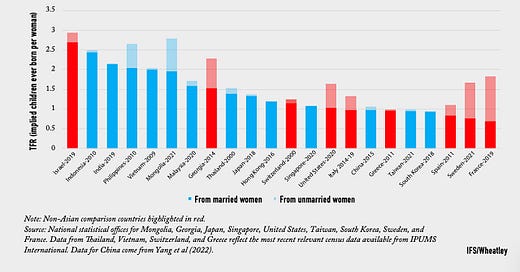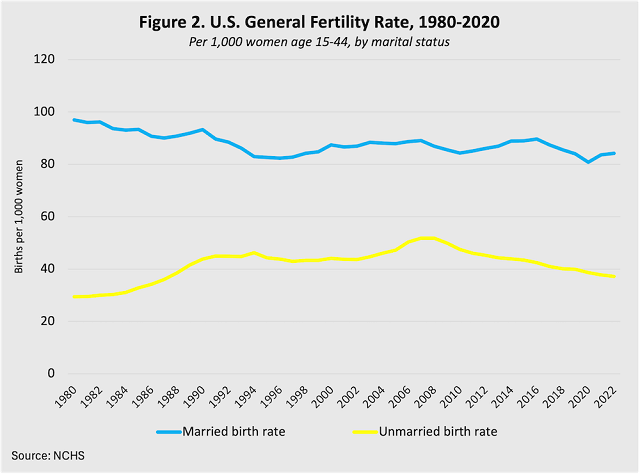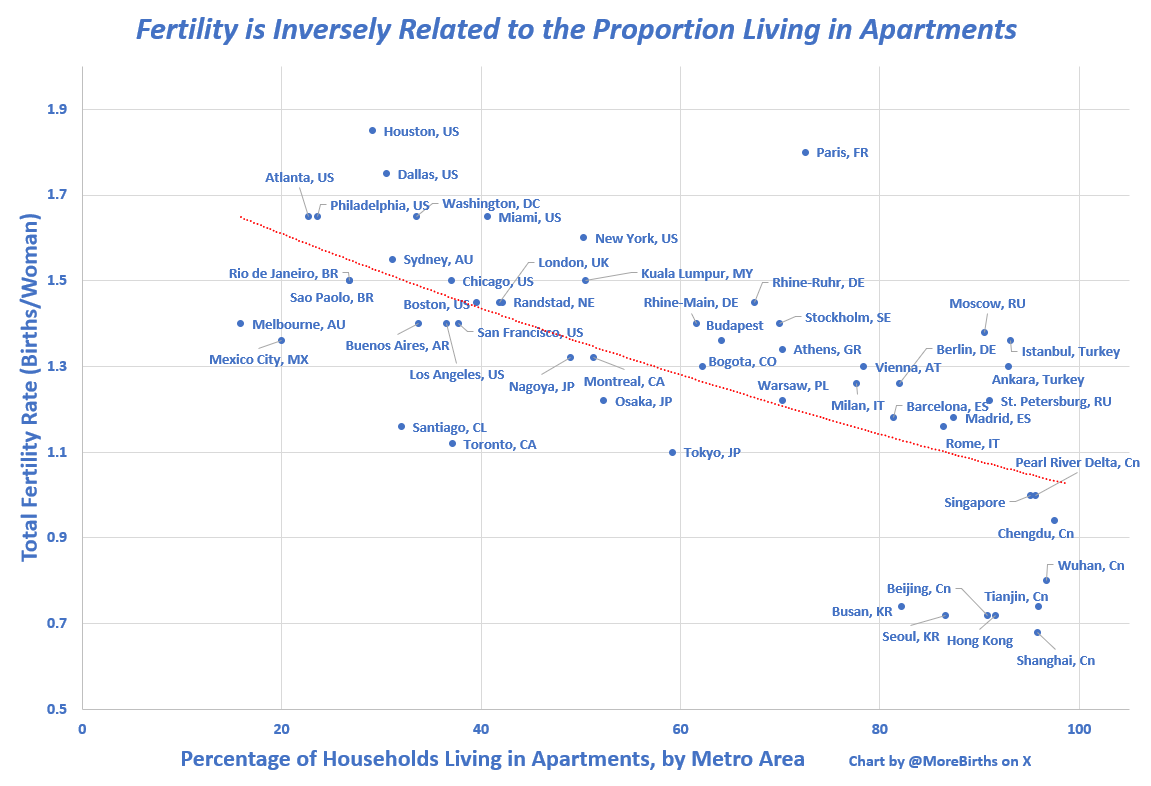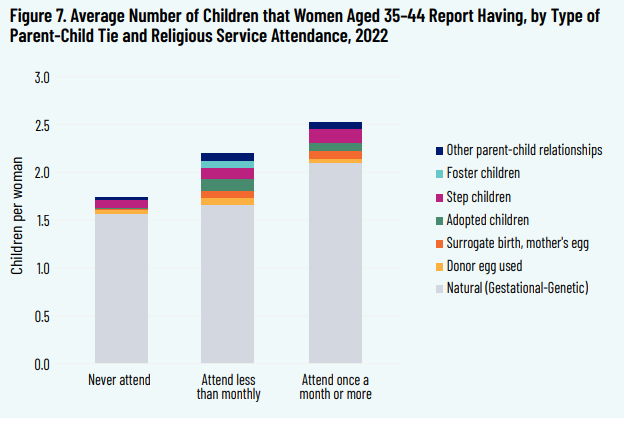Pronatalism as a Big Tent
As awareness builds about the low birthrate problem, many are inclined to see things through their own lens. For a lot of people, the preferred solutions to this unfolding crisis happen to look a lot like the things they were for already!
It's good to be open minded and accept that nobody has all the answers.
What is a pronatalist?
Is a pronatalist someone like Lyman Stone, a leading demographer who advocates for countries to adopt family-friendly policies like baby bonuses and child allowances to help close the gap between desired and actual fertility?
What about a couple like Simone and Malcolm Collins who are working to sound the alarm about low birthrates but are critical of many pronatal policies, which they regard as ineffective while pioneering controversial ‘Reprotech’?
How about someone like Bryan Caplan, who wrote, Selfish Reasons to Have More Kids, but doesn’t advocate for family friendly spending, which isn’t conventionally libertarian?
Where does Matthew Yglesias fit in? He wrote One Billion Americans and advocates for more social spending, but snarkily mocks marriage advocates, even though marriage the commonest pathway to having children.
What about Elon Musk, who has brought more attention to the low birthrate crisis than anyone, but is against work-from-home and doesn’t make a Tesla minivan?
Of course these are all pronatalists!
The most important thing is to believe in children!
Secondary to that is figuring out how to get more of them.
Stone, who is starting a new Pronatalism Initiative with the Institute for Family Studies writes, “Pronatalism literally means in favor of births.”
He then adds, “We hope that there can be political progress made towards a broadly shared goal of helping people have more children and thereby get closer to their desired family size.”
The first part is an expression of an ideal, and covers, I would argue, a strong majority of people.
The second part is an expression of something narrower, describing people who are engaged constructively on the policy front.
We should embrace the broader meaning of pronatalism while sharing knowledge to make everyone (including ourselves) better pronatalists. It is early stages, and none of us really knows for sure how we will solve this, but there are a lot of factors that impact family formation positively.
The pronatalist ‘experts’ (and I aim to be one) can probably make the biggest positive impact by showing all the things that are helpful and not helpful toward raising birthrates, so that everyone from politicians to influencers to business leaders and everyone else can work to change both culture and policy to be more oriented to families.
It will take many sides
Some of the most valuable solutions will be ones that are difficult to accept ideologically. All solutions should be considered because fertility decline may be the most difficult challenge that humanity faces right now.
Conservatives may not want to admit it, but many countries with very low out-of-wedlock childbearing and high expectations for marriage also have exceptionally low birthrates. Several East Asian nations seem to show that when you aim for only perfect families, you can end up with far fewer families overall. Countries like the United States, France and Sweden would have fertility of 1.0 or less if we only counted births inside of marriage.
Meanwhile some would ban IVF, which would alienate much of the public that is in favor of it.
There is a case to be made for broadly tolerant cultures, even while communicating that some family models and pathways tend to work better than others.
Liberals should recognize that social policies without family-positive communication will have little impact.
Across Europe and in the Anglosphere, liberals push social spending to remedy low birthrates while not daring to actually name the problem, or directly encourage marriage and childbearing. Perhaps such talk feels ‘right-coded’, but to be silent is to pass on the most impactful levers of all, the levers of culture.
Members of the YIMBY movement probably don’t want to admit that high-rise living makes it difficult for people to have children and that suburbs and rural areas are much better for raising families. But the places where birth rates are the furthest below replacement are places where apartments rather than houses are the norm.
Non-religious people may not want to hear how important religious belief and religious communities are for family formation. But to solve the fertility crisis, can you simply ignore religion, which is one of the biggest factors in the data?
The challenge for non-religious people meanwhile is to develop new ethics that encourage family formation, or else concede some ground to older ethics. The world needs scientists and academics, many of whom are secular, but they aren’t replacing themselves.
Traditionalists may not like the answer that many men need to help more with domestic chores like childcare, cooking and cleaning. But nations like Italy, Japan and Korea that relegate household work to women have fewer children than nations like Sweden and the US, where the share is more equal.
Free market evangelists should feel responsibility to address the conflict between work and family, given that birth rates often plunge when markets liberalize.
They may also have to rethink their resistance to policies related to maternity and paternity leave and other family benefits. After all, if people aren’t able to have children, then the economy (and society) will decline.
Policy experts may be frustrated with folks who talk about the importance of having kids but don’t support specific pro-natal policies.
Yet when Elon Musk and others use their platforms to encourage people to have children, they may move the needle of birthrates more than any single policy could.
A global pro-humanity movement
If you believe low birthrates are a problem or if you have an expansive vision of the future, or if you just think families are great, then you are a pro-natalist. We can figure out the details later!
No political or ideological side has a monopoly on solutions to the low fertility crisis, just as no side is absolved of responsibility for having helped to cause it. There is plenty for everyone to be humble about. Facing eventually catastrophe if things are not resolved, we should be open to whatever might work including things that go against our preferences.
(Credit to the Institute for Family Studies and Lyman Stone for three of the four charts above and much other foundational work.)






